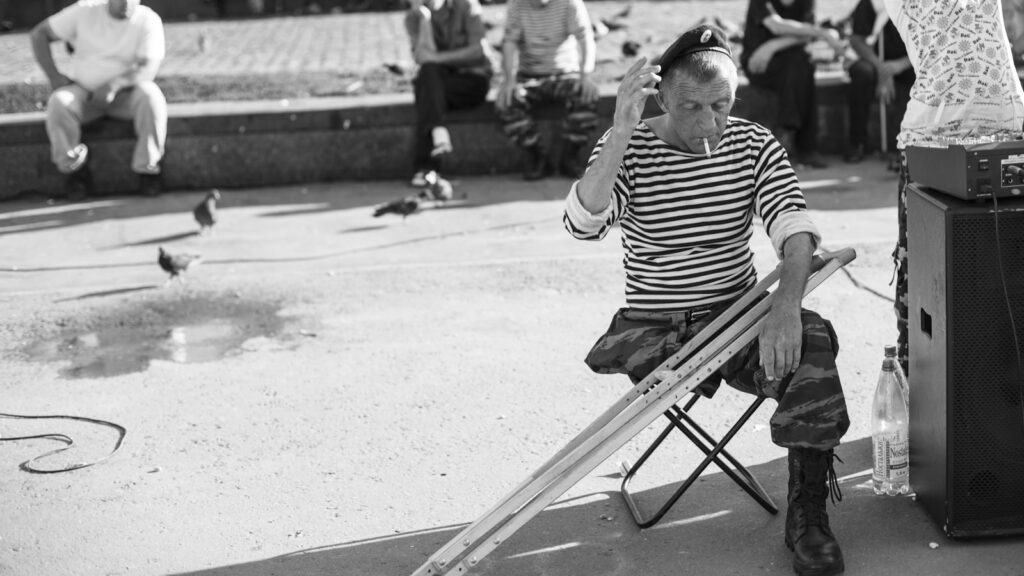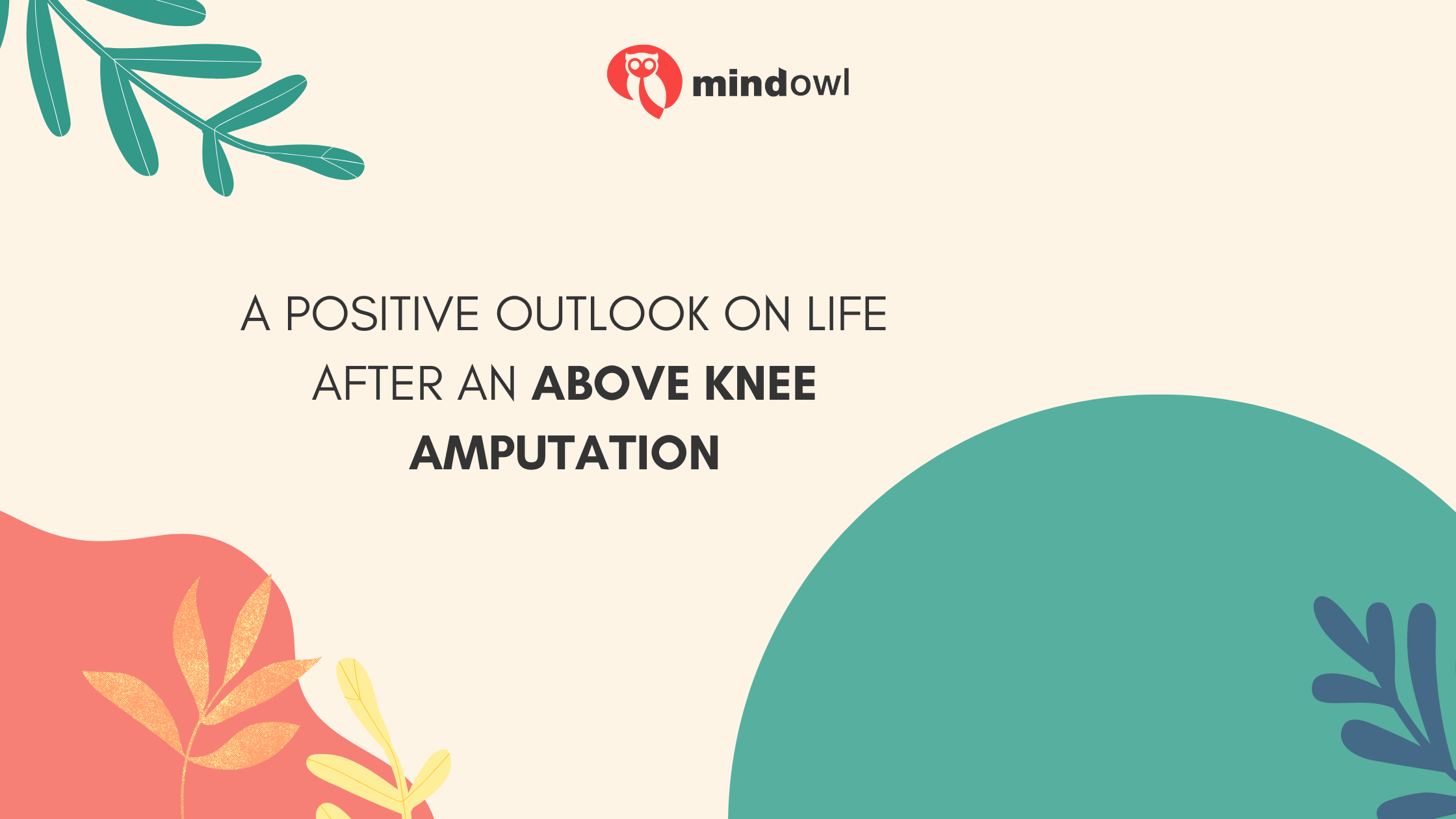The journey toward acceptance and adaptation is unique for each person, but it often involves a combination of emotional processing and practical adjustments. The unwavering support of loved ones, healthcare professionals, and prosthetics and orthotics company. This article delves into the multifaceted experience of individuals who have undergone above-knee amputations, exploring their emotional landscapes, the practical steps they take to adapt to their changed lives, and the inspiring stories of those who have not only overcome adversity but thrived in their new reality.
The sudden loss of a limb can be a life-altering experience, leaving individuals in a state of shock and emotional turmoil. The road to recovery is often fraught with challenges, both physical and emotional, as amputees navigate a new reality and adjust to a transformed body image. However, amidst the adversity, many individuals discover remarkable resilience and strength, embracing their “new normal” with a positive outlook.

The Healing Path: Overcoming Emotional Challenges After Amputation
The path to healing after amputation is a deeply personal one, often fraught with complex emotions and challenges. Individuals who have experienced limb loss commonly undergo a grieving process, similar to the stages associated with the loss of a loved one. It’s essential to recognize and acknowledge these emotions, allowing oneself to feel the pain, anger, and sadness that may arise.
While denial, anger, bargaining, depression, and acceptance may manifest differently for each person, understanding these stages can provide a framework for navigating the emotional journey. Initially, denial may serve as a protective mechanism, shielding the individual from the full impact of the loss. Anger and frustration can follow, directed at the circumstances, oneself, or even the medical professionals involved. Bargaining may emerge as a way to regain control or reverse the situation, often through unrealistic hopes or promises. As the reality of the amputation sets in, depression may take hold, accompanied by feelings of hopelessness, loss of identity, and social withdrawal.
During this emotional rollercoaster, seeking support is crucial. Connecting with others who have undergone similar experiences through support groups or therapy can offer a sense of community and understanding. Sharing one’s feelings with trusted friends, family members, or mental health professionals can provide a safe space to process emotions and receive guidance. Engaging in activities such as journaling, art therapy, or physical exercise can also promote healing and emotional well-being. It’s important to remember that there is no right or wrong way to grieve, and the healing process takes time. Patience, self-compassion, and a willingness to seek help are key to navigating this challenging journey.
Enhancing Independence: The Impact of Prosthetic Training on Daily Living
Adapting to life with a prosthetic leg involves a series of practical adjustments that can significantly influence one’s quality of life. Learning to walk and move again typically requires both physical and psychological resilience. The journey begins with prosthetic fitting, a meticulous process that demands precision and expertise. Working with skilled professionals in orthotics and prosthetics Las Cruces or similar locations ensures that the prosthetic limb is tailored to meet the individual’s specific needs, optimizing comfort and functionality.
The initial phase of using a prosthetic leg involves considerable training to master the coordination and balance necessary for walking. This training is critical as it helps individuals regain mobility and enhances their independence. Beyond the basics of movement, there are everyday practicalities to consider, such as selecting appropriate clothing that accommodates the prosthetic comfortably and making modifications to the home environment to remove potential obstacles.
Moreover, individuals with prosthetic limbs often face challenges beyond their personal space, particularly in the workplace and social settings. Navigating these environments successfully requires not only physical adaptation but also the development of strategies to handle social interactions and professional responsibilities effectively. Adjustments might include educating peers about one’s needs, advocating for suitable facilities, or employing specific tools and technologies designed to assist in performing job-related tasks.
These adaptations, while challenging, are essential for integrating the use of a prosthetic limb into all facets of life, enabling individuals to overcome barriers and lead full, active lives.
Defining New Normals: How Custom Prosthetics Inspire Resilience and Triumph
The narrative of resilience and triumph in the context of above-knee amputations is both profound and inspiring. Across various walks of life, individuals equipped with custom prosthetics have redefined their capabilities, embracing challenges with a fortitude that reshapes the boundaries of possibility. These stories often feature athletes who, through rigorous training and sheer will,
continue to compete at high levels, artists who adapt their creative processes to express their unique perspectives, and everyday individuals who find new ways to enjoy and excel in their daily activities.
The journey for each person begins with acceptance and is propelled by determination and a positive mindset. These qualities foster a deep-seated resilience that not only helps them to adapt physically but also enriches their lives emotionally and socially. The triumphs of these individuals do not solely reside in their achievements but are illuminated by their capacity to inspire and lead others who might be navigating similar hardships. The impact of their stories extends beyond personal success; they act as a beacon of hope and a testament to the human spirit’s capability to overcome adversity. In embracing their new normal, they demonstrate that with the right support, including access to custom prosthetics and a network of encouragement, life can be lived fully and passionately, regardless of the physical challenges faced.
Navigating New Normals: The Role of Support Networks for Above-Knee Amputees
Fostering a supportive community is crucial for individuals adjusting to life with leg prosthetics above the knee. The benefits of connecting with others who face similar challenges are manifold, offering not just practical advice but also emotional solidarity. Within these communities—be they online platforms or local support groups—members share their experiences and solutions, creating a rich resource that can significantly ease the adaptation process.
Such networks play a pivotal role in overcoming the initial isolation that may accompany a major life change. They provide a forum where individuals can express their concerns, celebrate their progress, and acquire knowledge about navigating various aspects of life with a prosthetic. The collective wisdom found in these groups can guide new members through their journey, offering insights that only those with similar experiences can provide.
Moreover, the importance of a well-rounded support system cannot be understated. It ideally includes not only peers from support groups but also friends, family, and healthcare professionals. Each group contributes uniquely to the individual’s recovery and adjustment. Healthcare professionals offer expertise and guidance on the technical and medical aspects, while friends and family provide the day-to-day emotional and practical support that bolsters resilience and fosters a sense of normalcy. Together, these networks create a comprehensive ecosystem of support, essential for thriving with leg prosthetics above knee.
Conclusion
In conclusion, adapting to life after an above-knee amputation hinges on maintaining a positive outlook, making practical adjustments, and nurturing a supportive community. These elements collectively facilitate a journey toward a fulfilling life, replete with meaningful experiences and accomplishments. Despite the physical challenges, embracing this new chapter with hope and determination opens the door to a rewarding future.
MindOwl Founder – My own struggles in life have led me to this path of understanding the human condition. I graduated with a bachelor’s degree in philosophy before completing a master’s degree in psychology at Regent’s University London. I then completed a postgraduate diploma in philosophical counselling before being trained in ACT (Acceptance and commitment therapy).
I’ve spent the last eight years studying the encounter of meditative practices with modern psychology.

